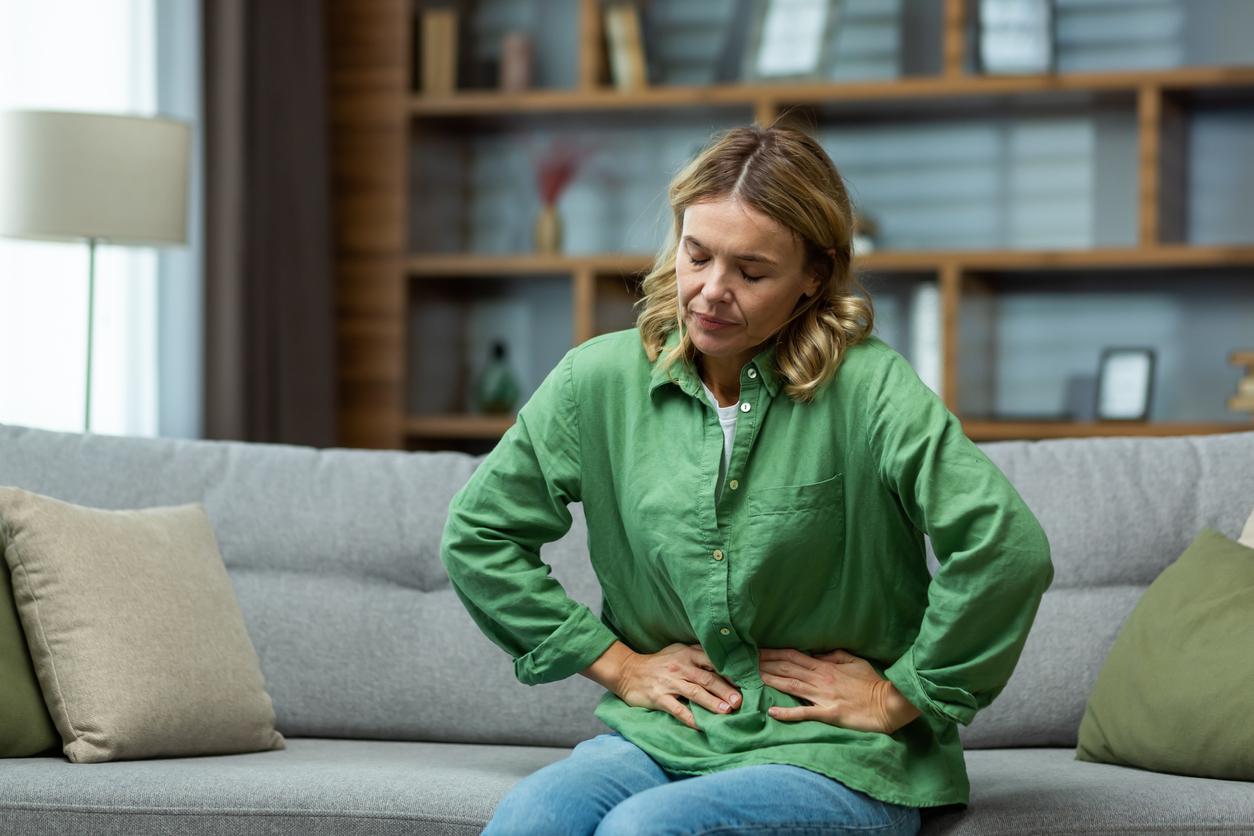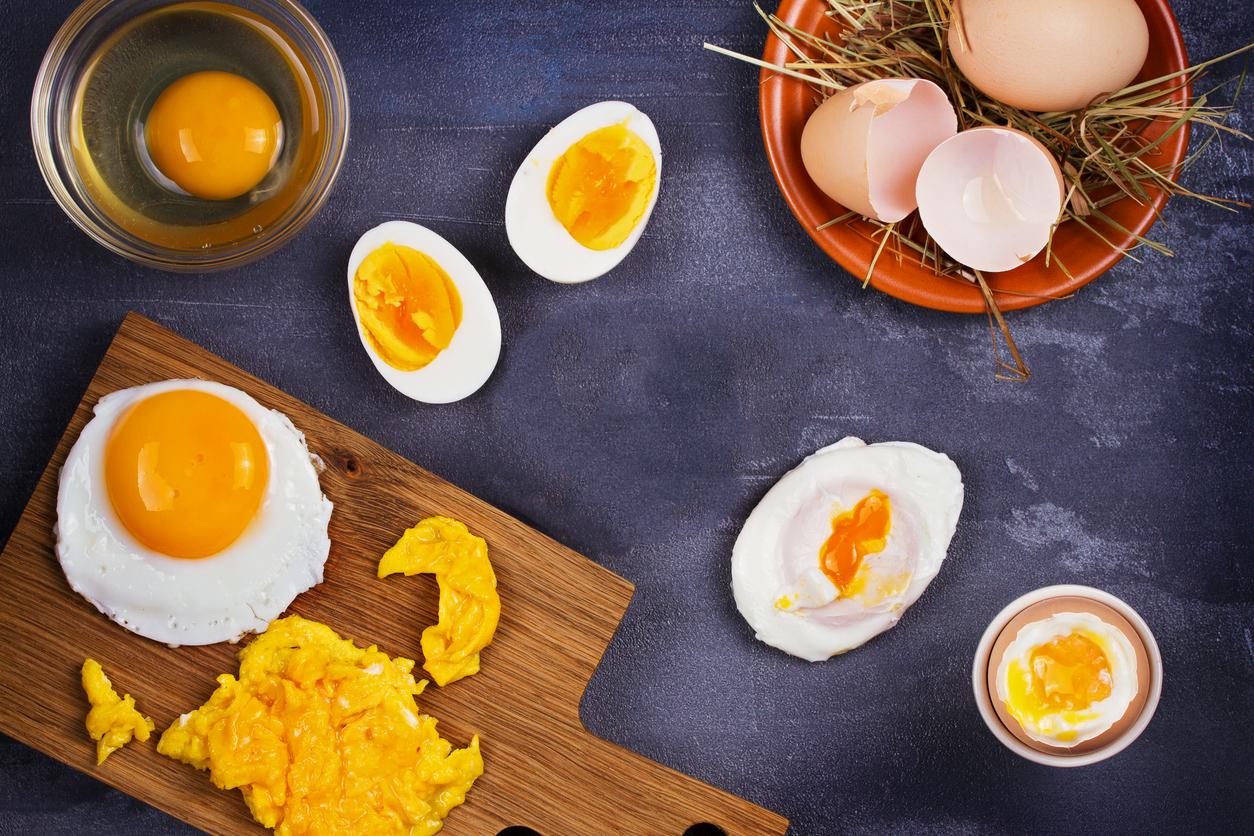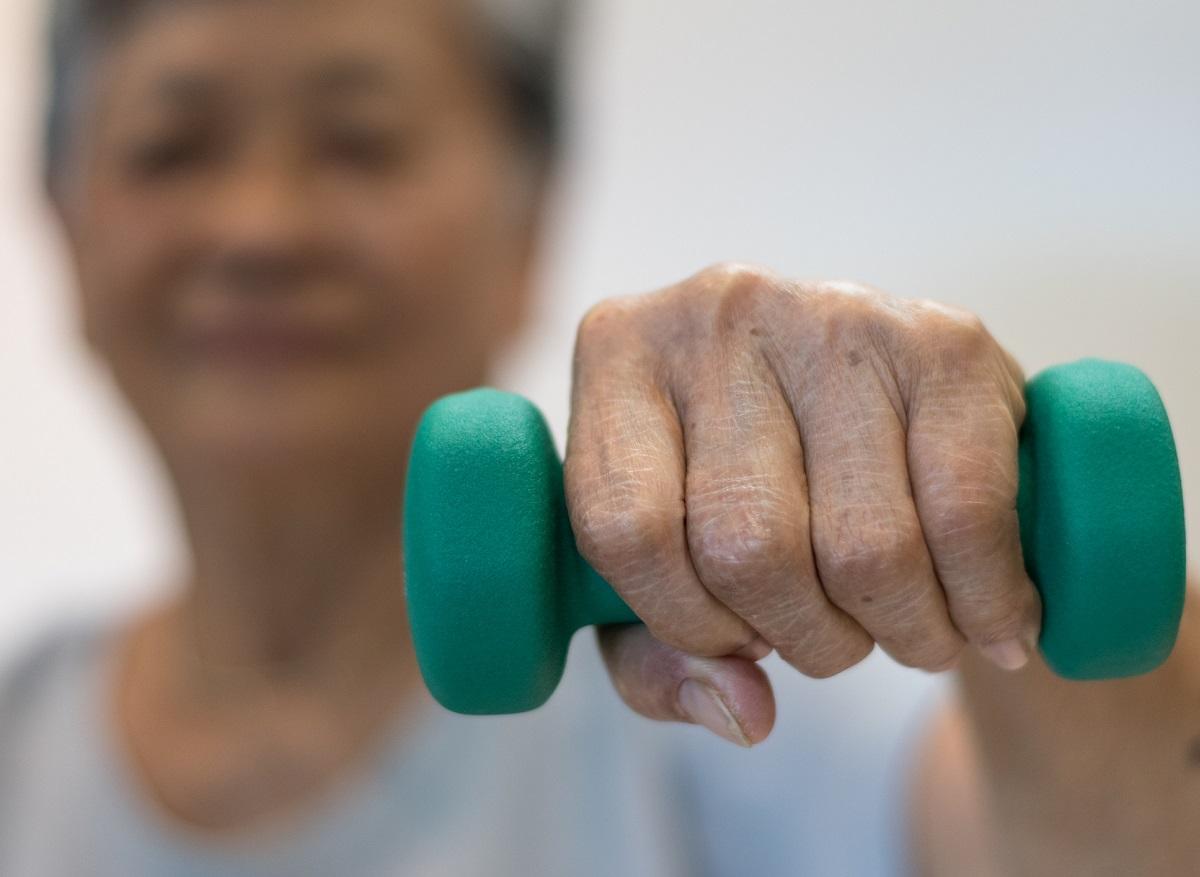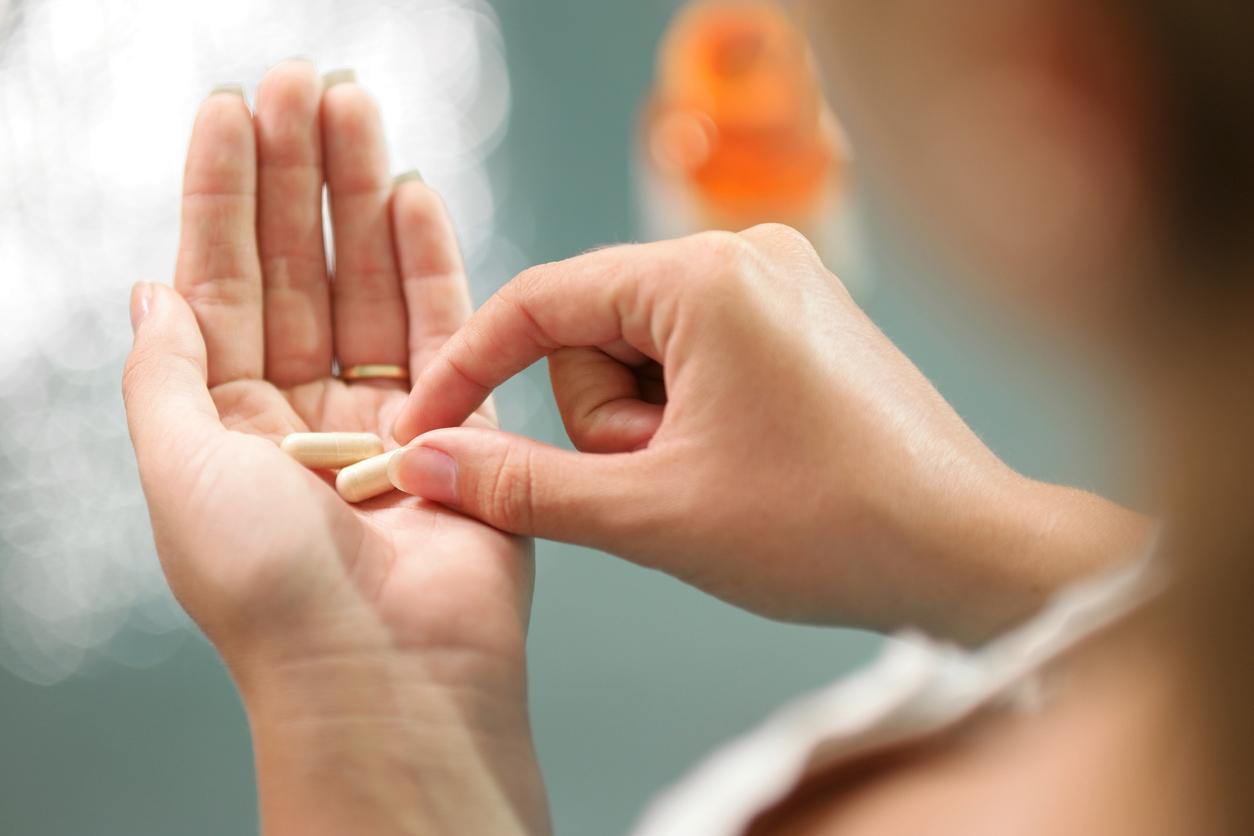The boiled egg diet is a restrictive weight loss technique. This recovery formula appeals to those who wish to “lose weight quickly”. But the boiled egg diet is a formula to be used in a particular context. Explanations, contraindications and exit from the egg diet, I explain everything to you.
The egg is made up of 2 consumable parts: the white and the yolk. Let’s start by describing these 2 parts, knowing that the white will be mainly consumed in this diet.
Egg white, protein
The egg white is part of the egg, which protects the yolk. It is made up of 90% water. Among the other constituents, there are mainly proteinsthe main one being called ovalbumin but also lysozymes. This protein is interesting for its coagulant and surfactant properties.
Thus, it is she who allows stabilize the foam of egg whites.
With only 48 kcal/100 g, egg white is food very light. It provides 90% water, nearly 10% protein and no fat !
In terms of micronutrients, egg white appears as a interesting source of vitamins B2, B3 and selenium. 100 g of egg white is enough to cover 25% of the recommended daily intake for these two vitamins.
The egg yolk
The egg yolk is the part of the egg that serves as source of food for the development ofembryo. It is held in suspension in the egg white by twisted filaments of cell tissue called “chalazas”.
The yolk is made up of protein,one-third fatmore particularly ofunsaturated fatty acids. An egg yolk contains on average 0.25g of cholesterol. It is therefore wrong to systematically implicate eggs in the event of hypercholesterolemia and to suppress them.
The egg yolk represents a excellent source of ironbut this one is nonheme, and covers 15% of daily intake recommended, especially for children and women who need it most. Along with cod liver oil and butter, eggs are among the best dietary sources of vitamin A.
The more colored the yolk, the richer it is in vitamin A (100 g of yolk cover 71% of a woman’s vitamin A intake). The egg yolk also provides a significant amount of vitamin D (20% of the recommended nutritional intake for 100 g of yolk).
hard-boiled egg diet
In the egg diet, we mainly consume egg whites, vegetable broth and low-fat dairy products.
- Egg whites, combined or not with 1 whole egg, provide proteins of good biological value which will prevent muscle wasting and ensure good satiation.
- Vegetable broth provides hydration and prevents vitamin and mineral deficiencies.
- Dairy products with 0% fat (you can add cinnamon or vanilla powder to flavor it) provide calcium intake and supplement the protein in the egg.
This is a very fast diet sequence. This “express” formula aims to make you lose about 3 kg in 1 week and faced with such an attractive promise, you have to really explain who it is for, specifying that it is part of a weight loss protocol. overall under penalty of a resumption of weight which will be automatic.
In practice :
Breakfast :
- 2 or 3 egg whites without the yolk (the figure of 3 is preferable for men).
- A dairy at 0% Coffee, tea, water, infusion at will and without sugar.
Lunch :
- 2 or 3 egg whites (especially for men) + 1 whole egg with the yolk.
- Vegetable broth as desired.
- 0% dairy 250 ml of water with lemon juice.
Having dinner :
- 2 or 3 egg whites (especially for men) + 1 whole egg with the yolk.
- Vegetable broth as desired.
- 0% dairy 250 ml of water with lemon juice.
- It will be necessary to drink during the day 1.5 l to 2 l of water, preferably mineral.
This diet is not a technique to follow as a habit, it is a recovery system that must be supervised and used on certain occasions.
When to do the hard-boiled egg diet?
- A medical emergencysuch as before surgery or any event requiring a rapid loss of a few pounds.
- In case of stagnation/demotivation despite serious monitoring of the program in order to boost weight loss and morale.
- In case of a special event (wedding…).
This diet, because of its very restrictive side, is not for everyone. You have to be in very good health. Thus, the egg diet is not recommended in the following cases:
Contraindications:
- Diabetes, especially insulin-dependent,
- pregnant and breastfeeding women,
- people suffering from food compulsions,
- in case of severe cardiac arrhythmias,
- liver or kidney damage,
- eating disorders,
- intensive sports.
If in doubt, never hesitate to ask your dietitian or your doctor if there is a contraindication.
After the egg diet
After the egg diet, a rehabilitation is essential. Because if we suddenly return to our food rebalancing, there will be a weight recovery of 1.5 kg minimum. It is therefore necessary, following this sequence, to switch to the flash diet (900 kcal at least) for a minimum of 8 days. Then we resume our program for a minimum of 1 month.
If this formula is planned is based on 1 week eggs, followed by 1 week at 900 kcal, stay tuned to your feelings.
If you feel the follow-up is too difficult, it is possible:
- to reduce the duration of the cure: 3 days eggs + 3 days 900 kcal for example instead of 7 + 7.
- in case of cravings, eat the vegetables used to make the broth.
In any case, this recovery option remains punctual. It is strongly advised to drink well at the same time, not to boost physical activity over the same period and to complete the slimming diary.
This sequence should not be repeated more than once every two months.
To better explain to you, take a good look at the complete video on the subject in the middle of the article. And if you have any questions, join the Cohen Method dieticians during the live consultations!



















